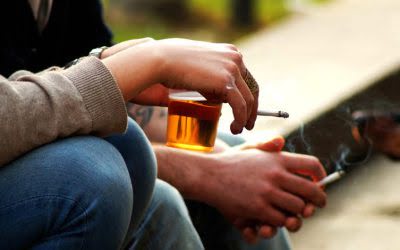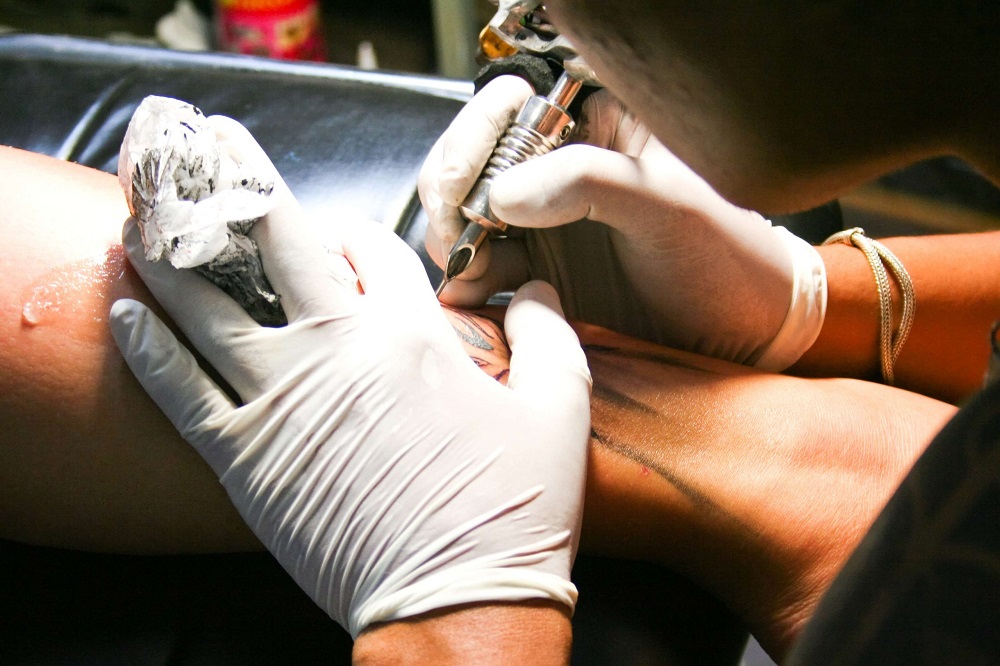Contents
Discovering someone you love has a drug problem can generate feelings of shock, fear, and anger, especially if it’s your child or teen who’s using. These strong emotions can make communicating with a drug user even more challenging. So, it’s important to choose a time when you’re both calm, sober, and free of distractions to talk. Offer your help and support without being judgmental. It’s not always easy to recognize if a loved one is abusing drugs.
What are three things that can help with withdrawal symptoms?
- Attend a medical detox program.
- Exercise regularly.
- Eat balanced and nutritious meals.
- Stay hydrated.
- Stick to a structured sleep schedule.
- Join a support group.
Effective Treatments for Opioid Addiction – Medications used in the treatment of opioid addiction. Ongoing peer support meetings, such as a 12-step program, to keep the recovery on track and maintain sobriety. Your loved one will need to find ways to cope with drug cravings and triggers. You can signs and symptoms of alcoholism help distract them with other activities or encourage them to learn how to ride out the urge, but ultimately, they have to be responsible for their own sobriety. Recovery for one person may mean total abstinence from drugs. For another, it could mean cutting back or staying mostly drug-free.
Ways to Help a Loved One with a Drug Addiction
Being too rigid in your expectations can lead to disappointment and a sense of failure, even if your loved one finds stability in their life again. Your loved one may become defensive or angry and refuse to discuss their drug use. Many people feel a sense of shame when confronted by their behavior and will try to deny they have a problem. Don’t argue with them, just revisit the issue another time. Even when you don’t agree with the person, take the time to listen to what they have to say, without trying to argue or contradict them.
• These groups often offer anonymous support and follow the 12-Step program initially developed for Alcoholics Anonymous. Besides detoxification and rehabilitation, your loved one may need to attend group or independent therapy. NIDA’s mission is to advance the science on the causes and consequences of drug use… Don’t be surprised if your loved one expresses some things you have done or said that are contributing to their addiction.
Drugs, Brains, and Behavior: The Science of Addiction
Clearly outline what behavior you will and will not tolerate and what the consequences will be if they break your rules. Quitting drugs can leave your loved one with a lot of extra time to fill. To help them avoid slipping back into old habits, encourage them to develop new interests—ones that don’t involve drugs but do add meaning to their life.
- The more your loved one feels heard, the more they’ll see you as supportive, someone they can confide in.
- Day treatment/Partial hospitalization – Partial hospitalization is for people who require ongoing medical monitoring but wish to still live at home and have a stable living environment.
- An addiction is a disease that requires professional help, counseling, and lots of work to uncover the underlying causes of the behavior.
- It is not intended to provide medical advice, which should be obtained directly from your healthcare provider.
Relapse rates for drug use are similar to rates for other chronic medical illnesses. If people stop following their medical treatment plan, they are likely to relapse. Like other chronic diseases such as heart disease or asthma, treatment for drug addiction usually isn’t a cure. Treatment enables people to counteract addiction’s disruptive effects on their brain and behavior and regain control of their lives. Staging an intervention can be a good step to help a drug addict who doesn’t want help.
Preparing for change: 5 keys to addiction recovery
As your physical health improves, you’ll also experience the “natural high” of endorphins, which can elevate your mood. And an exercise routine creates a structure to your days, helping to reduce your risk of a relapse. Staying busy is the best way to keep your mind off your desire to use. Not only that, but establishing an interesting and rewarding hobby can also help you find joy and purpose in your life, and replace your old unhealthy habits with new drug-free activities. When you meet, tell your family member or friend that you care for him or her.
Taking steps to begin treatment and recovery can be a painful process. However, it is the only path that holds promise for something better. As long as family members deny that there is a problem, the problem will progress along with suffering. Identification can be done through a health care professional screening, employee assistance professional, or family member. What happens after the screening depends on the results of the test. Some people can learn to cut back, while some need further assessment and possible treatment.
Avoid Lecturing/guilt/intimidation As A Way Of Coping
The hardest part to recovery is admitting you have an addiction. Substance use disorders affect the brain causing it to look for excuses and justifications to keep using. Do not give money to your loved one to allow him or her to continue to buy drugs or alcohol, but do remind your loved one that you are ready and willing to help him or her find help. Interventions should be planned and led by a professional for the best chance of success.
NIDA is a biomedical research organization and does not provide personalized medical advice, treatment, counselling, or legal consultation. Information provided by NIDA is not a substitute for professional medical care or legal consultation. You might be more than ready to let your loved one know how you feel about the issues their addiction has caused and feel a strong urge to get them to change. Having an effective conversation involves learning how to communicate with someone who has an addiction. These strategies will help you cope with the stressors you will likely encounter when helping a friend or family member seek and receive help with an addiction. Being in a relationship with a person who has a substance use disorder is often stressful.
Can you ever break an addiction?
Though addiction recovery is challenging, addiction is treatable. With supportive resources and the right treatment approach, you can overcome the physical and mental challenges you face in order to recover.
As you seek help for drug addiction, it’s also important to get treatment for any other medical or psychological issues you’re experiencing. Your best chance of recovery is by getting combined mental health and addiction treatment from the same treatment provider or team. Starting a conversation with someone about their drug addiction is never easy, but it’s important you come from a place of compassion and what should you do after a relapse understanding. Drug abuse is often a misguided attempt to cope with painful issues or mental health problems. Stress tends to fuel addictive behavior, so criticizing, demeaning, or shaming them will only push your loved one away and may even encourage them to seek further comfort in substance abuse. Twelve-step facilitation therapy (“12-step programs”) can be used to treat alcohol and substance abuse.
Talking can be very helpful in pinpointing the source of the craving. Also, talking about craving often helps to discharge and relieve the feeling and will help restore honesty in your relationship. Don’t try to go it alone—reach out for support.

To find a treatment program, visit SAMHSA’s Behavioral Health Treatment Services Locator. Don’t expect a dramatic shift in thinking or behavior right away; this conversation may be the first time the person has thought about this problem. List the behaviors you’ve observed, state that you are worried about the effect drinking or drug use is having and express concern about continued use. Some people threaten those seeking help to stop their efforts. Remain firm in your resolve to go forward and be aware of your personal safety. Waiting for people to ask for help is a risky strategy.
Whether you have a problem with illegal or prescription drugs, addiction treatment should be customized to your unique situation. It’s important that you find a program that feels right. There’s no one-size-fits-all solution to overcoming an addiction to drugs, and it’s rarely a process that’s quick or straightforward. While you can support your loved one and encourage treatment, you can’t force them to change or control their decision-making.
Consider all these options while planning an intervention suited to your loved one’s situation. Twelve-step facilitation is an individual therapy typically delivered in 12 weekly session to prepare people to become engaged in 12-step mutual support programs. 12-step programs, like Alcoholic Anonymous, are not medical treatments, but provide social and complementary support to those treatments. TSF follows the 12-step themes of acceptance, surrender, and active involvement in recovery. Certain treatment medications and devices reduce these symptoms, which makes it easier to stop the drug use.
An intervention team usually includes four to six people who are important in the life of your loved one — people he or she loves, likes, respects or depends on. This may include, for example, a best friend, adult relatives or a member of your loved one’s faith. Your intervention haven house los angeles professional can help you determine appropriate members of your team. The planning group forms a team that will personally participate in the intervention. Team members set a date and location and work together to present a consistent, rehearsed message and a structured plan.

There are a few things to keep in mind as you are thinking about talking to your loved one about their addiction. Rehab programs usually last either 30, 60, or 90 days. The National Institute on Drug Abuse recommends that people spend a minimum of 90 days in treatment.
Whatever treatment approach you choose, having positive influences and a solid support system is essential. The more people you can turn to for encouragement, guidance, and a listening ear, the better your chances for recovery. Long-term follow-up can help to prevent relapse and maintain sobriety. This may include attending regular in-person support groups or online meetings to help keep your recovery on track. Keep track of your drug use, including when and how much you use. This will give you a better sense of the role the addiction is playing in your life.
He is the medical director at Alcohol Recovery Medicine. For over 20 years Dr. Umhau was a senior clinical investigator at the National Institute on Alcohol Abuse and Alcoholism of the National Institutes of Health . Another way to coordinate recovery is to consider the financial aspect. Gathering information about health insurance and looking for availability at a treatment facility can be excellent ways to help a loved one. Has a history of heavy drinking and has severe withdrawal symptoms, such as confusion and severe trembling. Severe withdrawal symptoms, such as delirium tremens , can cause death.